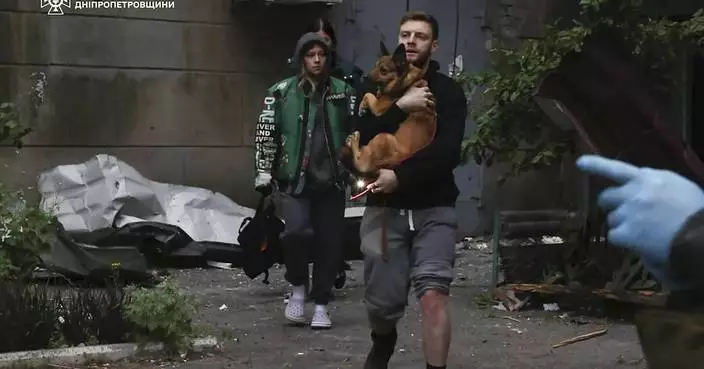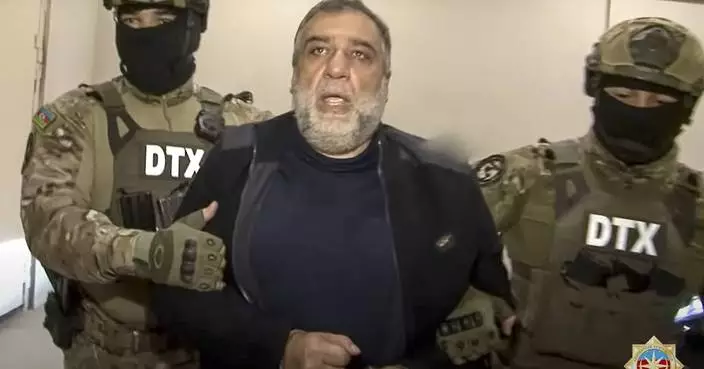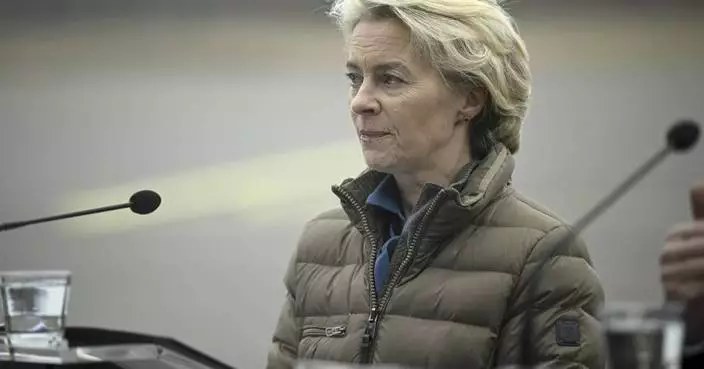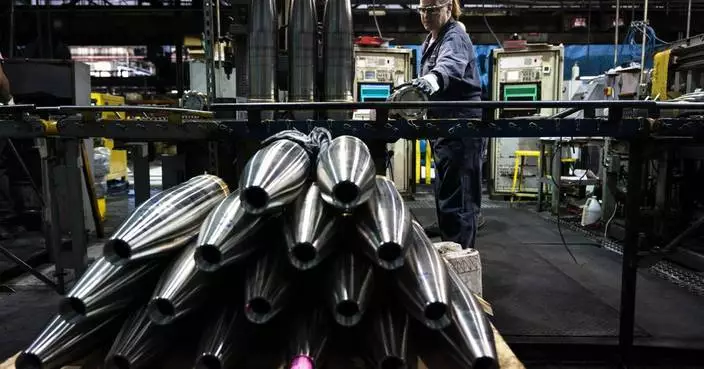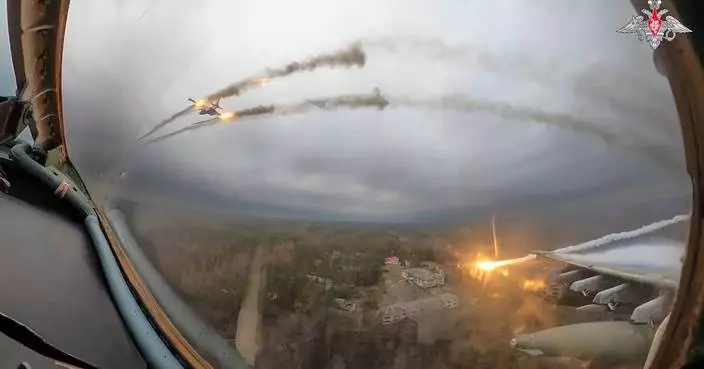Russian President Vladimir Putin has told the country's athletes to forget about doping scandals when they compete at the Pyeongchang Olympics.
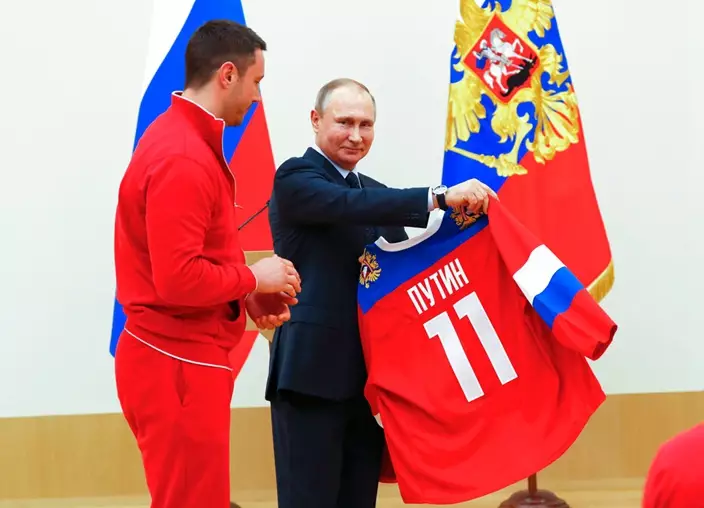
Russian President Vladimir Putin, receives a jersey from ice hockey player Ilya Kovalchuk, left, during a meeting with the Russian athletes who will take part in the upcoming 2018 Pyeongchang Winter Olympic Games in South Korea, at the Novo-Ogaryovo residence outside in Moscow, Russia, Wednesday, Jan. 31, 2018. (Grigory Dukor/Pool Photo via AP)
As punishment for what it deemed a doping scheme during the 2014 Sochi Olympics, the International Olympic Committee has invited 169 Russians to compete under a neutral flag using the name "Olympic Athletes from Russia."
"I wish you not to think about anything which has recently accompanied your preparation for these Olympics," Putin told a gathering of athletes at his presidential residence outside Moscow on Wednesday.
He added that he hopes they "focus on sporting competition, and that you know that following you, as usual, are hundreds of thousands, millions, of fans who love you and hope you win."

Russian President Vladimir Putin gestures while speaking during a meeting with the Russian athletes who will take part in the upcoming 2018 Pyeongchang Winter Olympic Games in South Korea, at the Novo-Ogaryovo residence outside in Moscow, Russia, Wednesday, Jan. 31, 2018. (Grigory Dukor/Pool Photo via AP)
While the athletes wore their IOC-approved "neutral" uniforms without the Russian flag — gray for men, red for women — the event was full of patriotic gestures.
Hockey players Pavel Datsyuk and Ilya Kovalchuk stepped up to present Putin with a Russian jersey bearing his name and players' signatures along with the slogan "Russia in my heart."
Several athletes wore their "neutral" jackets open to show a Russian-flag shirt underneath.
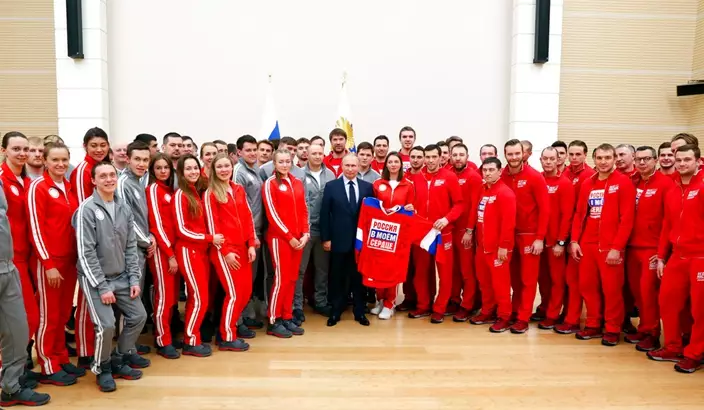
Russian President Vladimir Putin, holds a jersey while posing for a photo the Russian athletes who will take part in the upcoming 2018 Pyeongchang Winter Olympic Games in South Korea, at the Novo-Ogaryovo residence outside in Moscow, Russia, Wednesday, Jan. 31, 2018. (Grigory Dukor/Pool Photo via AP)
Russian athletes won't be allowed to display the flag in Pyeongchang, or to celebrate with Russian flags given by fans. If they win, the Olympic anthem will be played.
HELENA, Mont. (AP) — BNSF Railway attorneys told a Montana jury Friday that the railroad should not be held liable for the lung cancer deaths of two former residents of an asbestos-contaminated Montana town, one of the deadliest sites in the federal Superfund pollution program.
Attorneys for the company say the corporate predecessors of the railroad, owned by Warren Buffett’s Berkshire Hathaway conglomerate, didn't know the vermiculite they hauled over decades from a nearby mine was filled with hazardous microscopic asbestos fibers or that asbestos was dangerous.
BNSF attorney Chad Knight said the railroad could only be held liable if it could have foreseen the health hazards of asbestos based on information available decades ago when the alleged exposures happened.
“In the 50s, 60s and 70s no one in the public suspected there might be health concerns,” Knight said.
The case in federal civil court is the first of numerous lawsuits against the Texas-based railroad corporation to reach trial over its past operations in Libby, Montana. Current and former residents of the small town near the U.S.-Canada border want BNSF held accountable for its alleged role in asbestos exposure that health officials say has killed several hundred people and sickened thousands.
The seven-member jury met briefly Friday and planned to resume deliberations on Monday morning. They were instructed to decide if the railroad was at fault in the deaths and if so, the amount of damages to award to their estates. If the jurors find that the railroad should also face punitive damages, a separate hearing would determine that amount.
Looming over the proceedings is W.R. Grace & Co., a chemical company that operated a mountaintop vermiculite mine 7 miles (11 kilometers) outside of Libby until it was closed 1990. The Maryland-based company played a central role in Libby's tragedy and has paid significant settlements to victims.
U.S. District Court Judge Brian Morris has referred to the the chemical company as “the elephant in the room” in the BNSF trial. He reminded jurors several times that the case was about the railroad's conduct, not W.R. Grace's separate liability.
How much W.R. Grace revealed about the asbestos dangers to Texas-based BNSF and its corporate predecessors has been sharply disputed. The plaintiffs argued that railroad higher-ups were aware, but that workers on the ground in Libby were left out of the loop.
“We're here to make a party that accepts zero responsibility accept an appropriate amount of responsibility,” plaintiffs' attorney Mark Lanier said. “This is the fault of the bigwigs in the corporate office.”
The judge instructed the jury it could only find the railroad negligent based on its actions in the Libby Railyard, not for hauling the vermiculite.
The railroad said it was obliged under law to ship the vermiculite, which was used in insulation and for other commercial purposes. It said W.R. Grace employees had concealed the health hazards from the railroad.
Former railroad workers said during testimony and in depositions that they knew nothing about the risks of asbestos. They said Grace employees were responsible for loading the hopper cars, plugging the holes of any cars leaking vermiculite and occasionally cleaned up material that spilled in the rail yard.
The estates of the two deceased plaintiffs have argued that the W.R. Grace’s actions don’t absolve BNSF of its responsibility for failing to clean up the vermiculite that spilled in the railyard in the heart of the community.
Their attorneys said BNSF should have known about the dangers because Grace put signs on rail cars carrying vermiculite warning of potential health risks. They showed jurors an image of a warning label allegedly attached to rail cars in the late 1970s that advised against inhaling the asbestos dust because it could cause bodily harm.
Family members of Tom Wells and Joyce Walder testified that their lives ended soon after they were diagnosed with mesothelioma. The families said the dust blowing from the rail yard sickened and killed them.
In a March 2020 video of Wells played for jurors and recorded the day before he died, he lay in a home hospital bed, struggling to breathe.
“I’ve been placed in a horrible spot here, and the best chance I see at release — relief for everybody — is to just get it over with,” he said. “It’s just not something I want to try and play hero through because I don’t think that there’s a miracle waiting.”
The Environmental Protection Agency descended on Libby after the 1999 news reports. In 2009 it declared in Libby the nation’s first ever public health emergency under the federal Superfund cleanup program.
The pollution in Libby has been cleaned up, largely at public expense. Yet the long timeframe over which asbestos-related diseases develop means people previously exposed are likely to continue getting sick for years to come, health officials say.
Brown reported from Billings, Montana.
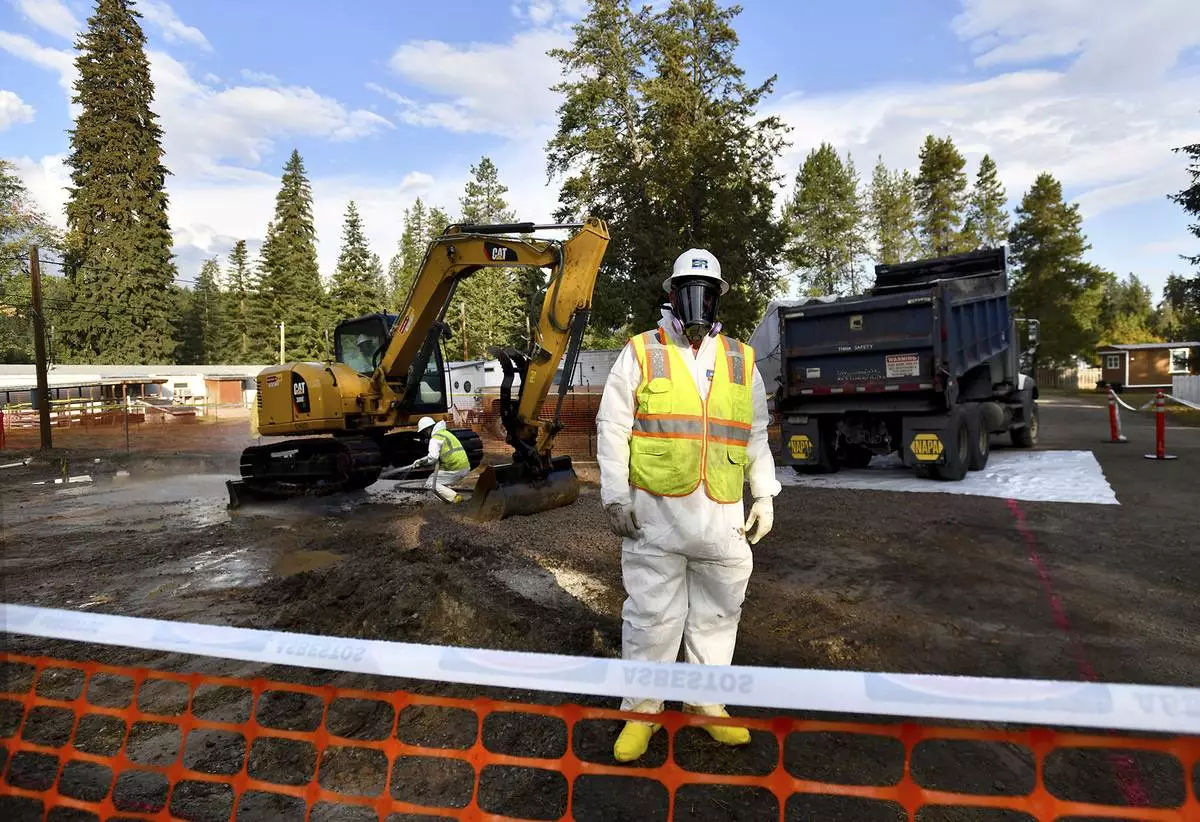
FILE - Environmental cleanup specialists work at one of the last remaining residential asbestos cleanup sites in Libby, Montana, in mid-September. BNSF Railway attorneys are expected to argue before jurors Friday, April 19, 2024, that the railroad should not be held liable for the lung cancer deaths of two former residents of the asbestos-contaminated Montana town, one of the deadliest sites in the federal Superfund pollution program. (Kurt Wilson/The Missoulian via AP, File)
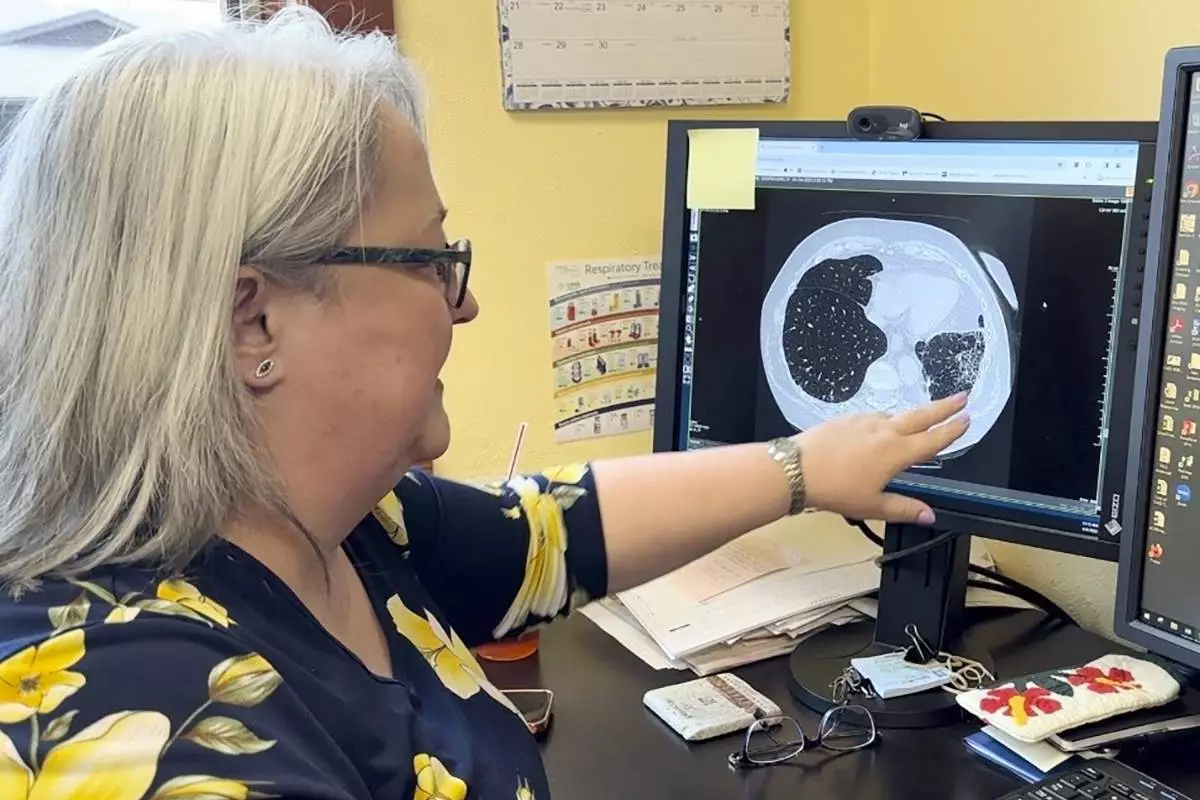
FILE - Dr. Lee Morissette shows an image of lungs damaged by asbestos exposure, at the Center for Asbestos Related Disease, Thursday, April 4, 2024, in Libby, Mont. BNSF Railway attorneys are expected to argue before jurors Friday, April 19, 2024, that the railroad should not be held liable for the lung cancer deaths of two former residents of the asbestos-contaminated Montana town, one of the deadliest sites in the federal Superfund pollution program. (AP Photo/Matthew Brown, File)
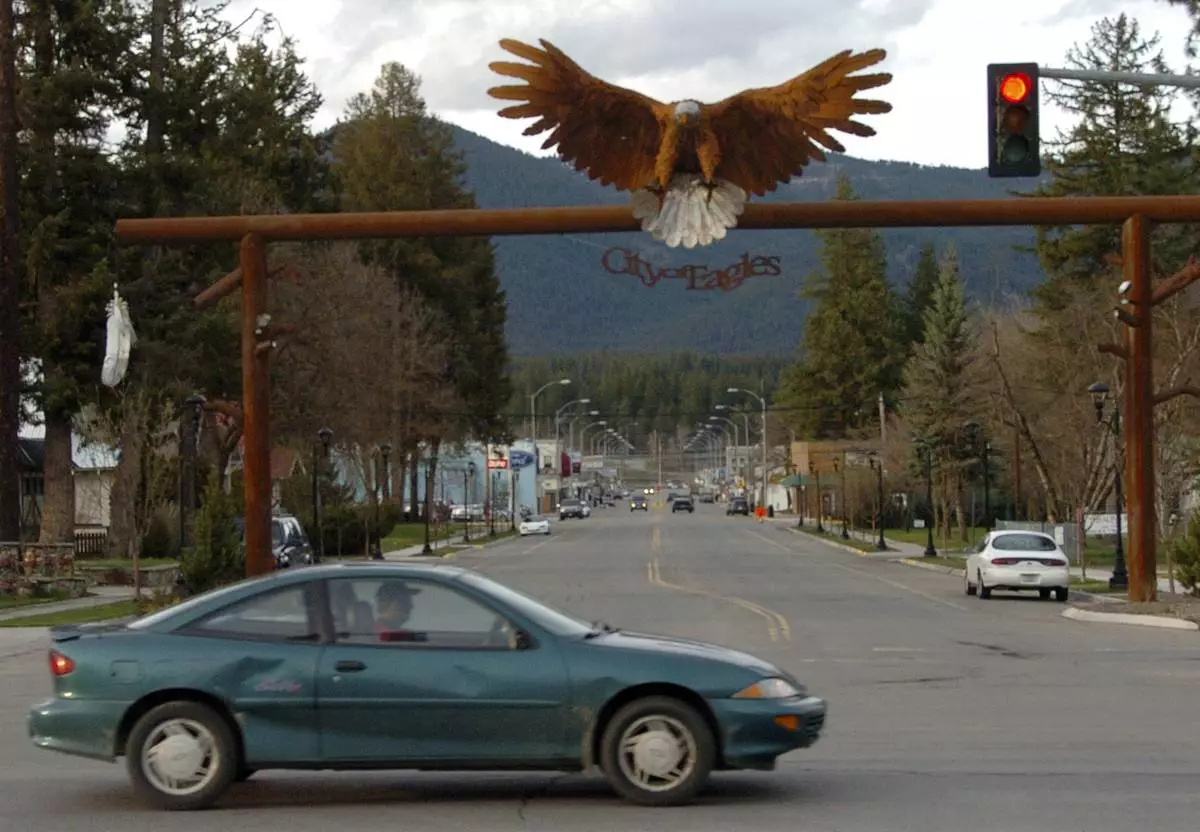
FILE - In this April 27, 2011, file photo, the entrance to downtown Libby, Mont., is seen. BNSF Railway attorneys are expected to argue before jurors Friday, April 19, 2024, that the railroad should not be held liable for the lung cancer deaths of two former residents of the asbestos-contaminated Montana town, one of the deadliest sites in the federal Superfund pollution program. (AP Photo/Matthew Brown, File)










